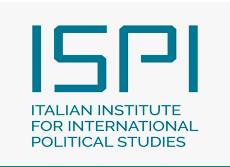Tempo de leitura: 2 minutos
As many as 136 countries agreed to the introduction of an OECD-sponsored reform in October 2021, introducing a global minimum corporate tax rate of 15%.
The reform has yet to be ratified by local parliaments and effectively implemented, remaining a head-scratcher for many, particularly in developing countries. However, Irma Mosquera, professor of tax governance at Leiden University in the Netherlands, believes that “the time is now” for policymakers to reconsider the kind of fiscal incentives they offer investors through tools like free trade zones that have flourished on preferential tax rates.
Q: Can free zones survive a global minimum tax?
A: We already have free trade zones with a corporate tax rate of 20%, for instance in Colombia. In those cases, if we apply a global minimum tax of 15%, it’s going to be just fine.
However, the problem we have — especially in developing countries — is that when the tax rate is 0–5%, that rate has been agreed with the zone’s tenants. Often, those rates are attached to a stabilisation agreement signed between the local government and the investors, guaranteeing that the rates will not change.
A lot of countries are already locked into disputes with investors because of changes in their tax system. They will have to start having a discussion about whether adopting a global minimum tax of 15% is against any of the existing guarantees offered to investors.
The reason why this discussion is important is that users and operators of free trade zones are not generally aware of all the changes taking place. It’s important for them and the investment promotion agencies to become aware of their implication for the local tax systems and the kind of disputes that can be raised before international courts.
Q: What room do free trade zones have to tweak the incentives they offer?
A: Free trade zones are not only about reduced corporate income taxes. They can offer incentives with regards to VAT rates and customs duties.
Investment promotion agencies and policymakers need to think about their free zones as a long-term, sustainable incentive providing certainty to investors and promoting social and economic development.
Q: Are policymakers still in time to rethink their free zones programmes as the global minimum tax is discussed and reviewed by authorities in Europe and the US?
A: The time is now for countries to review their free trade zones, look at their legal framework, the stabilisation agreements with the investors, and the kind of consequences that changes in their tax regime could trigger.
At the moment, I’m more afraid of the investment disputes these changes could bring than pillar two of the OECD reform [introducing a 15% global minimum corporate tax], as such.
Q: Do you believe the global minimum corporate tax will eventually be approved?
A: I have the feeling that there won’t be a multilateral agreement. Instead, we will have countries or regions like the EU introducing minimum tax rules.





Os comentários foram encerrados, mas trackbacks e pingbacks estão abertos.